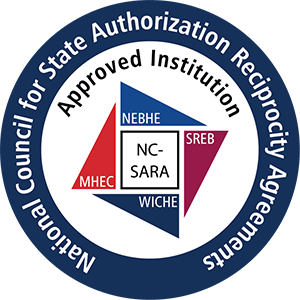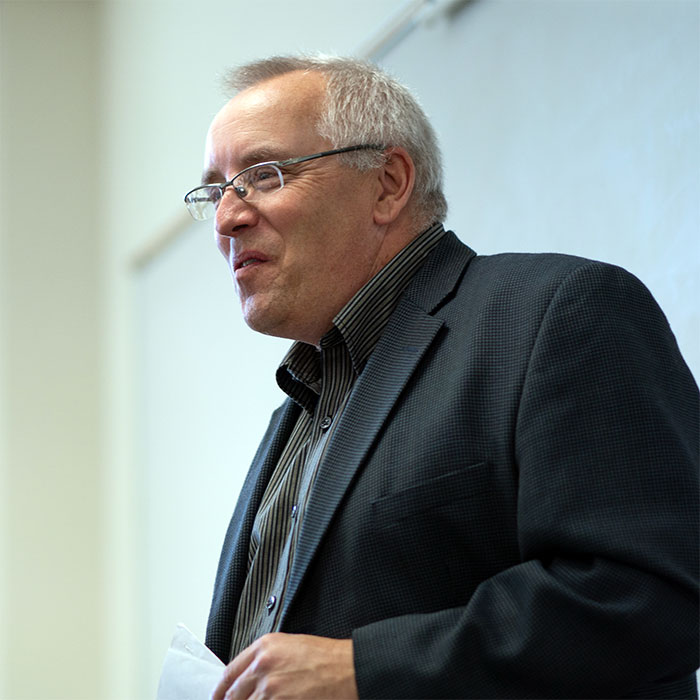MA Graduate Program
Our Master of Arts (MA) in Counseling degree program open the door for you to help others through a variety of curriculum, practicums, and internships within our three concentrations: Marriage, Couple, and Family Counseling; Mental Health Counseling; or Professional School Counseling. The Master’s Degree in Counseling offers both online and in-person modes of instruction, allowing you the flexibility you need.
Vetted by the Council for Accreditation of Counseling & Related Educational Programs (CACREP), our Master of Arts in Counseling program supports and shapes you to be a positive force of change in the lives of families, communities, and individuals. This Christian master’s in counseling program offers academic training from a Christ-centered perspective for students looking to pursue a career path of professional counseling.
Geneva College offers three Counseling concentrations that meet CACREP standards. Each concentration allows you to get the most value out of your Master’s in Counseling and specialize in your professional area of interest.
Geneva is an approved SARA institution in Pennsylvania. The National Council for State Authorization Reciprocity Agreements (NC-SARA) is a voluntary, regional approach to state oversight of postsecondary distance education. States and institutions that choose to participate agree to operate under common standards and procedures, providing a more uniform and less costly regulatory environment for institutions and more focused oversight responsibilities for states. Geneva College's participation in NC-SARA allows Geneva's programs to be available to students who are located in member states. for more information. At present, California is the only U.S. state to have not yet joined NC-SARA.
Students who begin an online program while located in a state in which Geneva is authorized to offer online programs need to be aware that moving to a state or location in which Geneva is not authorized to offer the program may have negative consequences, such as the loss of eligibility for certain forms of financial aid and/or the ability to complete the academic program.
Please note that SARA membership does not include reciprocity for licensure or certification issues with other states. Geneva's licensure programs meet Pennsylvania licensure and certification requirements only. Completion of these requirements does not guarantee compatibility with other state licensure certifications. Before enrolling in an online licensure program at Geneva, research whether the licensure will be compatible with those of your home state. View the State Licensure Boards here.
Student resources are available regarding Withdrawal & Refund Policies.

Want to learn more about the M.A. in Counseling Program at Geneva? Select an option below.
| Term | Start Date | Recommended Application Deadline |
|---|---|---|
| Intensive Residency 2024 | August 19, 2024 | July 8, 2024 |
| Fall A 2024 | August 26, 2024 | August 5, 2024 |
| Spring A 2025 | January 6, 2025 | December 2, 2024 |
The M.A. in Counseling Program offers the following concentrations: Clinical Mental Health, Marriage, Couple, and Family, and Professional School Counseling. All three programs are accredited under the 2016 CACREP standards.
Counseling Programs/Student Outcomes Data

Dr. Jim Matta M.A. in Counseling Professor and Clinical Mental Health Program Coordinator
The mission of the Master of Arts in Counseling Programs is to educate, supervise, and mentor students to develop knowledge, skills, and personal awareness necessary for them to function as professional counselors.
Professional counselors use various interventions to facilitate wellness, personal growth, and mental health among those whom they counsel. A multidimensional holistic view of persons examines the interplay of physical, psychological, social, and spiritual aspects of life.
Read More about Our Mission and PhilosophyStudents earning their Master's in Counseling degree will benefit from a fully integrated program that combines the foundational tenets of the Christian faith along with the secular viewpoints necessary to provide well-rounded professional counseling guidance to individuals in secular and religious settings.
Students will learn how to demonstrate their knowledge and understanding of the Christian faith, as well as other roles of spirituality and religion on the change process, and demonstrate competencies around integrating these perspectives into analysis, evaluation, and/or case conceptualization processes in professional counseling settings.
The Clinical Mental Health master of counseling degree equips students with a multidimensional viewpoint that takes into account the relational aspects of an individual’s social, spiritual, psychological and physical health. Professional counselors or therapists with a school counseling master’s degree, a fully online program, will learn the necessary counseling tools and interventions needed to guide an individual toward improved mental health, wellness and personal growth. The Marriage, Couple, and Family Counseling Program introduces students to the history, philosophy and etiological premises that define the practice of marriage and family counseling/therapy.
All of Geneva’s Master of Arts in Counseling programs are CACREP (Council for Accreditation of Counseling and Related Educational Programs) accredited, which opens up a much broader window into career opportunities. Having this accreditation means that our programs have been vetted by the highest training standards, which makes our graduates highly qualified for any career they seek in the counseling field.
The Clinical Mental Health Counseling concentration equips students with a multidimensional viewpoint that takes into account the relational aspects of an individual’s social, spiritual, psychological, and physical health.
The Professional School Counseling concentration teaches students the counseling and intervention tools needed to guide students toward improved mental health, wellness, and personal growth.
The Marriage, Couple, and Family Counseling concentration introduces students to the historical and philosophical premises that define the practice of marriage, couple, and family counseling/therapy. This concentration places a heavy emphasis on group counseling, highlighting the importance of integrating a variety of approaches that allow groups to grow through each unique situation.
A graduate degree in counseling allows you to pursue a vocation that is founded on nurturing growth, wellness, and mental health among individuals and groups of people. Depending on the concentration you choose within our counseling program, you can find a wide array of job opportunities working as a counselor, clinical therapist, social worker, school counselor, and many other roles in the following work settings:
Your education — and your career growth — doesn’t have to stop with your master’s in counseling. In fact, many of our students go on to pursue a doctorate degree in counseling. To learn more about pursuing one of these educational paths through Geneva College, please use our request information form.
Complete the following information to connect with an admissions counselor.
Connect in person or virtually and discover the depth of the Geneva Graduate Programs. We offer flexible visit options that accomodate your schedule.
Schedule a Call / View Events